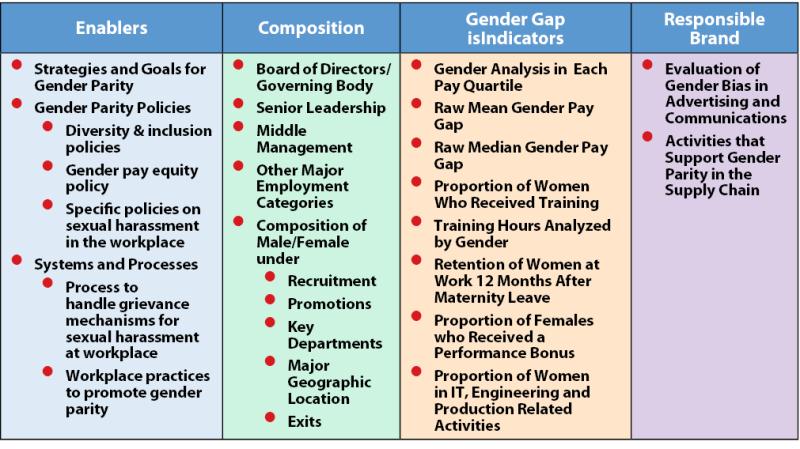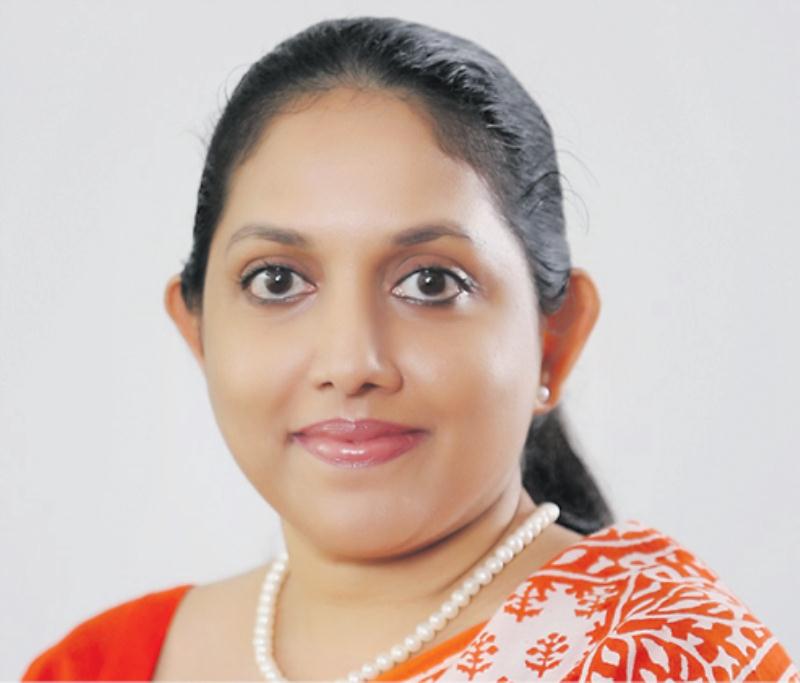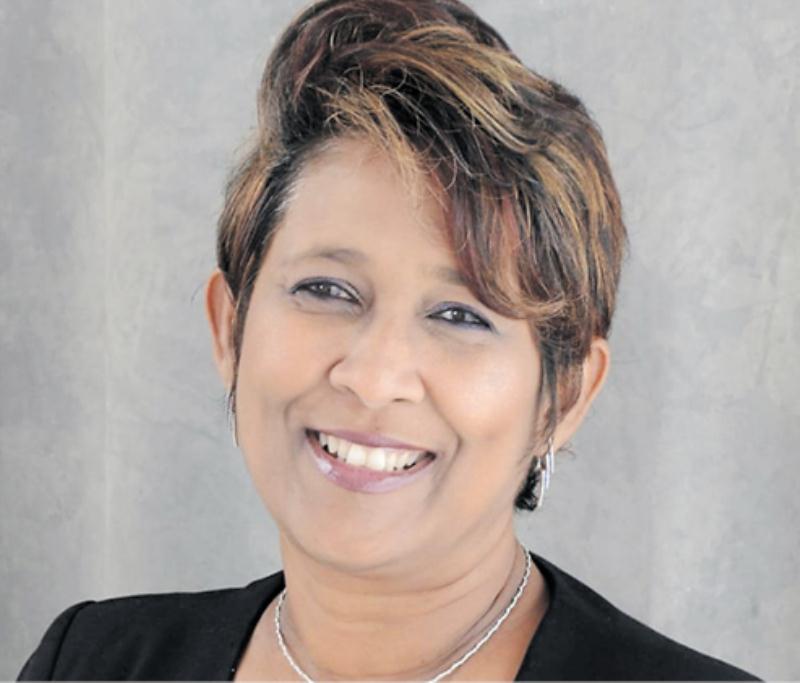By Uwin Lugoda
Despite the shrinking gender gap in business leadership globally, men do still dominate the playing field. The urgency for gender parity in both the public and private sectors is on the rise as the pace of change accelerates in the global economy.
According to the sixth edition of “Women in the Boardroom: A Global Perspective”, women hold just 16.9% of boardroom seats globally. While the figure has increased by 1.9% since the last edition of the report in 2017, women are still severely underrepresented in corporate boards, with the trend seeming to have a slow rate of change.
Research also shows that diversity in the boardroom brings in dividends, with companies that have more women on their boards delivering a 36% better return on equity. This is further explored in a 2015 McKinsey report, which estimated that closing the gender labour gap could add as much as $ 28 trillion, or 26%, to annual global GDP by 2025.

The report also took Sri Lanka into account and estimated that the country can increase its GDP by 14.4%, with another similar study conducted by the IMF (International Monetary Fund) stating that the number could be even higher, reaching almost 20%.
The Institute of Chartered Accountants of Sri Lanka (CA Sri Lanka) has been in the forefront of pushing gender parity in the country’s workforce.
The Sunday Morning Business sat down with CA Sri Lanka – Women Empowerment and Leadership Development Committee Chairperson Aruni Rajakarier and CA Sri Lanka Chief Executive Officer Dulani Fernando, for a conversation on the current issues Sri Lanka is facing in terms of gender parity.
[caption id="" align="alignleft" width="425"] CA Sri Lanka Chief Executive Officer Dulani Fernando[/caption]
CA Sri Lanka Chief Executive Officer Dulani Fernando[/caption]
 CA Sri Lanka Chief Executive Officer Dulani Fernando[/caption]
CA Sri Lanka Chief Executive Officer Dulani Fernando[/caption]
[caption id="" align="alignleft" width="428"] CA Sri Lanka – Women Empowerment and Leadership Development Committee Chairperson Aruni Rajakarier[/caption]
CA Sri Lanka – Women Empowerment and Leadership Development Committee Chairperson Aruni Rajakarier[/caption]
 CA Sri Lanka – Women Empowerment and Leadership Development Committee Chairperson Aruni Rajakarier[/caption]
CA Sri Lanka – Women Empowerment and Leadership Development Committee Chairperson Aruni Rajakarier[/caption]
“We need to get out of the mindset that gender creates a barrier. Last year, I participated in the CA Sri Lanka council meetings as the CEO, when the council consisted of 16 male council members, and that did not intimidate me. This intimidation is a mental barrier many women carry in their workplace. It is true that we have our differences, but we need to identify them and work towards our strengths,” Fernando elaborated.
Rajakarier explained that society needs to understand that women come with their own set of challenges, especially when it comes to things like sexual harassment.
“Our biological structure is different to that of a man’s, therefore we have more challenges than men. For a girl to miss school four days of the month because she does not want to be laughed at makes it tough to compete.”
According to Rajakarier, these challenges have seen women choosing not to have children, get married late, or not get married at all, due to disadvantages they would face in the workplace.
She went on to state that women do not even have to be married to face challenges, as most unmarried women in Sri Lanka are tasked by their siblings to leave their jobs and solely look after their ageing parents.
Speaking about the employers, Rajakarier stated that a lack of flexibility in employers also leads to women leaving the workforce. She explained that several studies done show that employers need to be more accommodative, establish pro-gender parity policies that work, and have an awareness of the unconscious bias that is present in the workforce.
Fernando stated that one reason women refuse certain positions and are not forthcoming to apply for positions, as much as their male counterparts, is because of work-life balance which differs from person to person.
“What works for me will not work for you and the same goes for a mother who has to take care of young children and a daughter who has to take care of ageing parents, so employers need to be more flexible. We need to strike a balance which is right for us without neglecting our work responsibilities. At the end of the day, your work has to be up to date, there’s no compromise on that,” she said.
Rajakarier stated that employers need to look at the output of their employees rather than the time they clock in. Having worked in several companies, Rajakarier shared her experiences on having seen both mothers and fathers working remotely, and offices accommodating hot seats, which means not everyone has to come to office at any given time.
“If it’s done within a set of guidelines, remote working can solve a lot of issues, including ones for the company such as rent and even solving a lot of the traffic congestion we see in Colombo.”
Rajakarier explained that another challenge they currently face has to do with asking males to drive this change, as they are the ones in the position to do so.
“Most of them are the same people who have their wives at home, so they do not understand the issues faced by women in junior to middle management.”
The fix
Rajakarier stated that one of the things brands can do to change cultural perceptions surrounding women in the workforce is to improve their communication.
“When Meghan Markle, the Duchess of Sussex, was a child she wrote a letter to Unilever regarding their detergent bottle advertisement only showing a woman washing clothes. This is because brands need to be responsible when it comes to communication.”
She explained that this responsibility lies with brands, due to them having a lot of airtime when it comes to television commercials which are viewed in every home.
Rajakarier stated that brand communication can change minds without people even realising it, and despite companies not having a gender mix, they can be more responsible with their brand communication by being gender sensitive and not stereotyping genders. She went on to state that this change can be seen in the Indian advertising industry, having already taken steps to change the way they communicate with their consumers.
“It’s nice to see that Sri Lanka has this whole family trend when it comes to advertising, but we can’t always have women mixing the salad,” said Rajakarier.
Fernando added to this, stating that companies need the right brand ambassadors who can speak with women, and get them to change the mindsets of their spouses and children.
“Small things like using a man in a detergent commercial can go a long way and its even better when using someone who is well known,” said Fernando.
She also stated that another way employers can aid this change is by having more flexible hours, where employees are allowed to work remotely or are allowed to have responsibilities at home. She explained that this will help women to move up in the corporate ladder.
The target
Rajakarier stated that the Sri Lankan Government is currently encouraging companies to have at least 30% female participation in their boardrooms in 2020. However, this number is a voluntary one.
In order to assist this, CA Sri Lanka’s Women Empowerment and Leadership Development Committee published a directory of board-ready female chartered accountants, to be non-executive members of audit committees, in August 2019. Currently the directory hosts a talent pool of 49 women and the committee hopes to expand that figure every year.
According to Rajakarier, the committee took its assistance a step further by developing a gender parity framework, alongside leadership, development, and mentoring for women. She explained that CA Sri Lanka is an inspiration, having had several female executive and non-executive directors in the chartered membership.
“This is what we did during the year; we inaugurated a women’s forum to share ideas and have a different way of finding a solution,” she said and added that they also wanted to change the composition of the CA Sri Lanka council last year, in order to make sure there was women representation in the institute. She stated that now three out of the 16 council members are female, two of whom were elected members and one of whom was appointed.
“I think the institute has really taken a huge step forward to assist in achieving this goal and provide leadership.”
Fernando stated that even when it comes to CA Sri Lanka’s management team, most of them are female. According to her, CA Sri Lanka is an organisation that allows females to go up the ladder, where they have an opportunity to have a work-life balance.
“We give them full maternity leave and additional leave during early feeding days. Ideally, we would also like to work towards flexi time, where people can be allowed to go pick up their kids from school and manage other urgent commitments.”
The total number of members in CA Sri Lanka is currently at 5,943 with 1,904 of them being fully qualified and trained females, making 32% of their membership women.
The gender framework
Rajakarier explained that the framework has four pillars which are enablers, composition, gender gap indicators, and responsible brand.
Policies on diversity and inclusion fall under the first pillar, “enablers”. These diversity and inclusion policies are present at the points of recruiting, promoting, and when companies are singling people out for training sessions.
Other policies like the gender pay equity policy, focuses on not only employee salaries, but on promotions as well. Other polices include ones that prevent occurrences like sexual harassment in the workplace and a grievance mechanism on how to report sexual harassment.
“Not only do you need a code of conduct addressing sexual harassment, there must also be a mechanism in which they can report it, outside of their reporting line,” said Rajakarier.
She stated that an IFC study showed that the anywhere-anytime performance culture is one of the biggest drawbacks in improving gender participation.
The next pillar she spoke on was “composition”, where companies have to actually look at the composition in their teams.
“Currently, a few companies like Unilever have put a policy in place that states that if the team goal of 30% women is not met, they have to justify their male hires.”
The third pillar, “gender gap indicators,” provides hard data when it comes to the proportion of women in the pay quartile, mean gender pay gap, and a few others.
According to Rajakarier, the pillar “responsible brand” is the most impactful when it comes to evaluation of gender bias in advertising and communication, as well as companies that support women in the supply chain.
She explained that these brands need to strengthen their supply chains and make sure their suppliers and distributors go through screening processes to ensure that they have a code of conduct.
“Strengthening of the supply chain can be seen in apparel companies, where their buyers insist that they have policies in place to take care of their floor workers, such as weekly counselling for them to go and discuss their problems.”
Rajakarier stated that despite having large, award-winning corporates, she has not seen any Sri Lankan companies working towards gender disparity.
However, she stated that CA Sri Lanka’s Women Empowerment and Leadership Development Committee will be active as long as it has to be to reach their goal.
“We only began a year ago, but we will be active as long as we need to be to get this done. We will also be taking up various projects and carrying them forward.”

